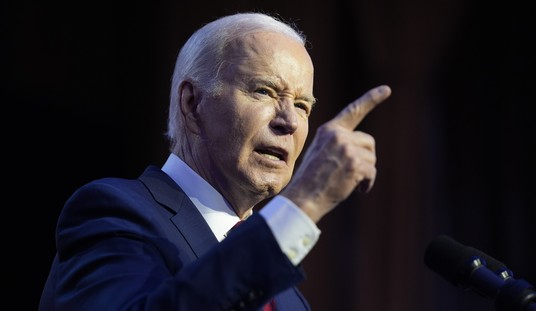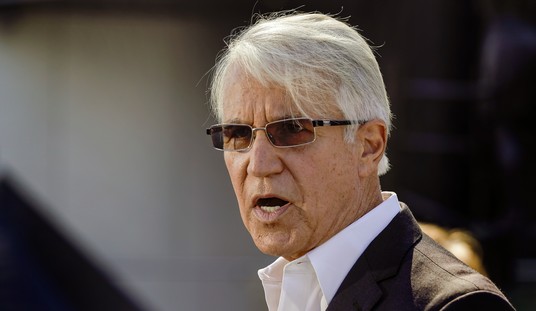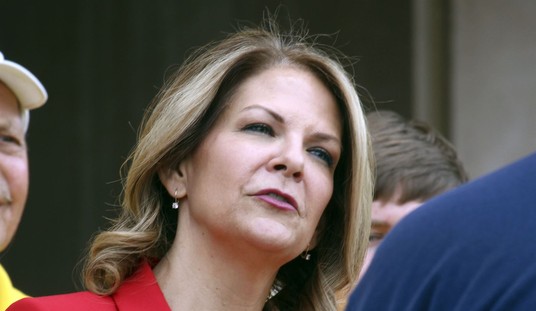James MacDonald of ForeignPolicy.com describes the current Seldon Crisis occurring in Western economies as the end of a seven decade experiment. This is described by Walter Russell Mead as The Blue Social Model. He talks us through its particulars below.
Graduate from high school and you were pretty much guaranteed lifetime employment in a job that gave you a comfortable lower middle class lifestyle; graduate from college and you would be better paid and equally secure. Life would just go on getting better. From generation to generation we would live a life of incremental improvements — the details of life would keep getting better but the broad outlines of our society would stay the same.
The fundamental organizing principal of the American Economy will have to be moved away from the now-failed Blue Social Model. The GOP candidates competing with Barack Obama for the presidency will have to drive this transformation. Part 1 discussed Michele Bachmann’s stated policies and past actions. Part 2 was about Mitt Romney. Today, we’ll discuss Texas Governor, Rick Perry.
Debate currently swirls about whether the economy of Texas has been a job creation dynamo or an over-hyped Potemkin. An ancillary debate involves whether Governor Perry made Texas create more jobs, or whether instead, he just stood back and enjoyed watching it happen. A sound mathematical case can be made that Texas would have a statewide U3 of 2.3% if its population were constant instead of rapidly increasing. You’d have to get your news from Keith Olbermann and ONLY Keith Olbermann not to realize that the Texan economy is in vastly better shape than the non-Texan economy at the current point in time.

We therefore move to the more important questions. Did Rick Perry help make this happen in any significant fashion? Assuming Rick Perry did actually make Texas economically better off; can we assume without loss of generality that he can do the same for Barack Obama’s other 56 states? As Herman Cain intelligently pointed out, Governor Perry will have to be effectively vetted before we anoint him with the nomination. We begin that process with Rick Perry’s stated positions on economics below.
Rick Perry’s Gubernatorial website has a section devoted to Economic Development. In this section he describes his governing principle for economic policy below.
The Lone Star State’s combination of low taxes, reasonable and predictable regulatory structure and fair court system provides a stable base upon which to build the Texas economy, while the state’s diverse and hard-working workforce is prepared to meet any need an employer can present.
On taxes, Governor Perry inherited a unique and, in my opinion, a brilliantly just system of state taxation. Texans are taxed on consumption. In essence, the extent to which a Texan pays state sales taxes depends upon that individuals’ level of self-discipline. Texans are also taxed heavily on how much property they own. This is progressive (richer people typically hold more land) and also economically incentivizing. To make land worth holding in large amounts, the Texan entrepreneur has to find ways to make that land generate enough revenue to cover the property tax burden. Thus, very few people are able to take land out of circulation in order to drive up its asset value.
On legal climate, Governor Perry can legitimately claim a greater role in the current state of economic conditions in Texas. He aggressively backed and signed into law HB 274 which included four significant law suit reforms.
• Allowing a trial court to dismiss a frivolous lawsuit immediately if there is no basis in law or fact for the lawsuit;
• Allowing a trial judge to send a question of law directly to the appellate court without requiring all parties to agree if a ruling by a court of appeals could decide the case;
• Allowing plaintiffs seeking less than $100,000 to request an expedited civil action; and
• Encouraging the timely settlement of disputes and helping prevent a party from extending litigation by seeking a “home run” if they have already been offered a fair settlement.
On Government regulation, Governor Perry has attempted to minimize the extent to which such regulation impacts the daily lives of business professionals. He seems to ascribe to the basic wisdom of not telling T. Boone Pickens how to extract Natural Gas or Mark Cuban how to design and use computer software. Texas, which has sent Ron Paul to Congress for several terms, has a strong Libertarian bent to its politics that limits the toleration for a strong regulatory state.
There are, however, things that Texas does systematically regulate. Governor Perry has made sure that Texas competes aggressively with other nearby states, such as Mississippi, which subsidizes industries to locate factories within its borders. Home Depot, M&G Group, and EA Games are all companies that Texas has recently incentivized in order to have them create jobs within the state. Governor Perry describes his efforts to attract business to Texas below.
At Gov. Perry’s urging, the Legislature has established and consistently funded two additional tools to attract and create Texas jobs – the Texas Enterprise Fund (TEF) and Emerging Technology Fund (ETF). The TEF functions as a “deal closing” fund, enabling Texas to compete directly with incentives offered elsewhere in the country, its investments tied directly to job creation. Meanwhile, the ETF helps early-stage tech companies grow their ideas from the laboratory into the marketplace, in the process helping keep Texas at the forefront of new technologies.
This suggests that Rick Perry would be less or a regulatory activist than Barack Obama; but that he still would favor government intervention in economic affairs if he felt the benefits greatly outweighed the costs. An important thing to point out here is that Governor Perry does not favor government involvement, or lack thereof, on an ideological basis. He likes some forms of economic activism from government, but not others, on an Act Utilitarian basis.
In conclusion, Rick Perry’s economic record in Texas seems to be driven by some good luck and some intelligent decisions. He is a proponent of necessary tort reforms and is smart enough to stay out of the way of really intelligent business people when he is fortunate enough to have them on hand. Both of these aspects of his record are vast improvements over the president we have right now.
He is not a completely didactic free-marketer. For better, or for worse, he will attempt to strategically insert government influence into some market transactions. What makes this tendency somewhat less toxic than Barack Obama’s ideological jihads against Big Business and….The Rich, is the fact that he does this to temporarily achieve a better material outcome. A free market purist would still complain that Governor Perry has used government to pick a few winners and losers.
Rick Perry has practiced the economics of pragmatism. He has used this framework to enhance and improve on some excellent economic results down in Texas. This won’t be perfect for the ideological 100%-ers. However, when compared to the academic Left Keynesians who currently manage our economy today, Governor Perry would represent a tremendous lightening of the burdens of governance upon capital.














Join the conversation as a VIP Member